Setting Up Webhooks
By using Webhooks in kintone, you can automatically send information on specific actions to a specified external service as the actions are carried out on kintone apps.
For example, you can have the content of records automatically posted to a chat service when they are added to kintone. An integration like this can be configured without writing a program.
How Webhooks work
Using an integration tool that enables you to use Webhooks, you can connect kintone with various services supported by the tool.
Examples of the tool are Zapier, Microsoft Power Automate, and IFTTT.
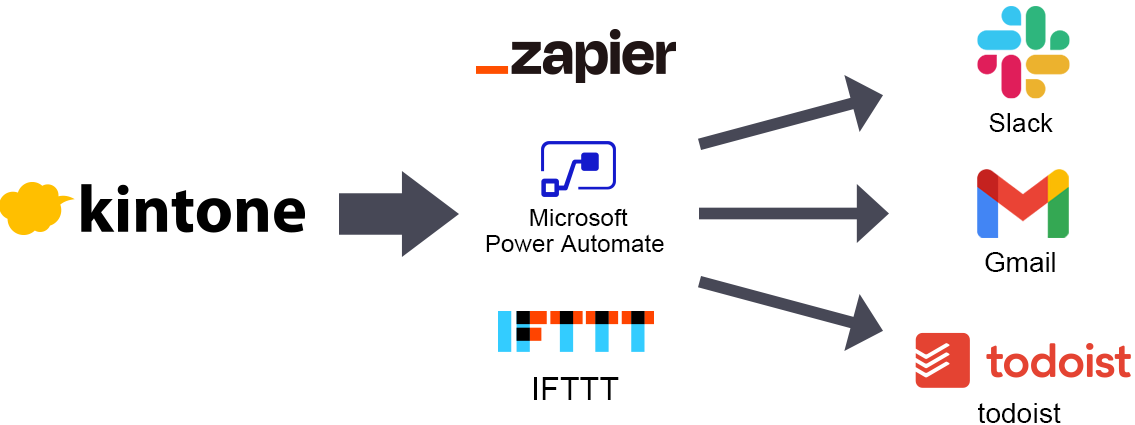
Setting up Webhooks on a kintone app, you can set up notifications for the following actions carried out on the app.
- Adding a record
- Editing a record
- Deleting a record
- Posting a comment
- Updating the status (When the process management status is updated)
For details on parameters used in Webhook notifications that are triggered by actions on kintone, refer to Content of Webhook Notifications Triggered by Actions on kintone.
Procedure to set up a Webhook
Below is the procedure to set up a Webhook.
- Set up a trigger using an integration tool (e.g. Zapier)
- Set up a Webhook on kintone
- Set up an action using the integration tool
Example
This section provides an example of using Zapier to set up a Webhook that sends a notification to Gmail as a new record is added on kintone.
Preparation
As a preparation for setting up a Webhook, carry out the following:
- Create a Gmail account
- Create a kintone app
When your Gmail account and kintone app are ready, follow the steps described below.
Setting up a trigger on Zapier
-
Access Zapier website and sign up.
If you do not have a Zapier account, create a new one or sign up with your existing account, such as a Google account. -
Click Create Zap on the Zapier website.
-
On the screen to choose a trigger, enter "Webhook" in the search box and click Webhooks by Zapier.
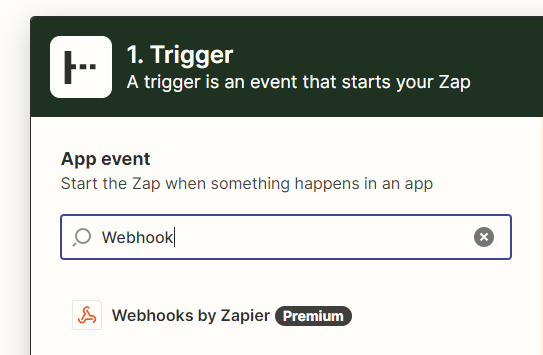
-
Select Catch Hook under Event and then click Continue.
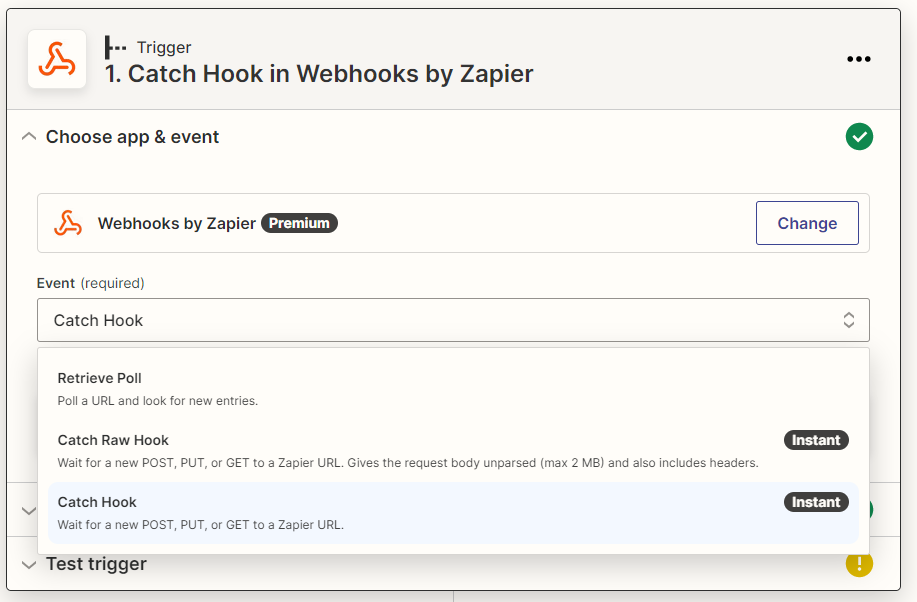
-
On the screen that follows, click Continue.
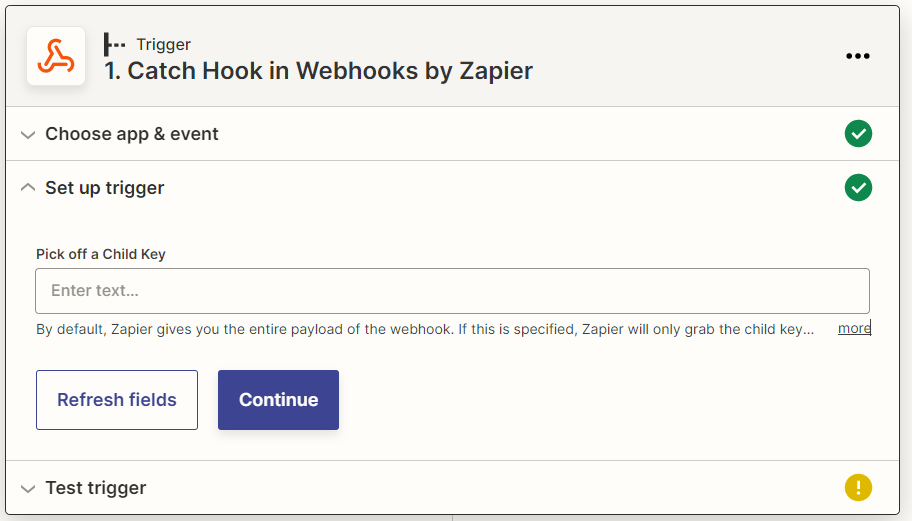
-
When a Webhook URL is generated, click Copy.
Paste the copied URL somewhere at hand, such as a text editor.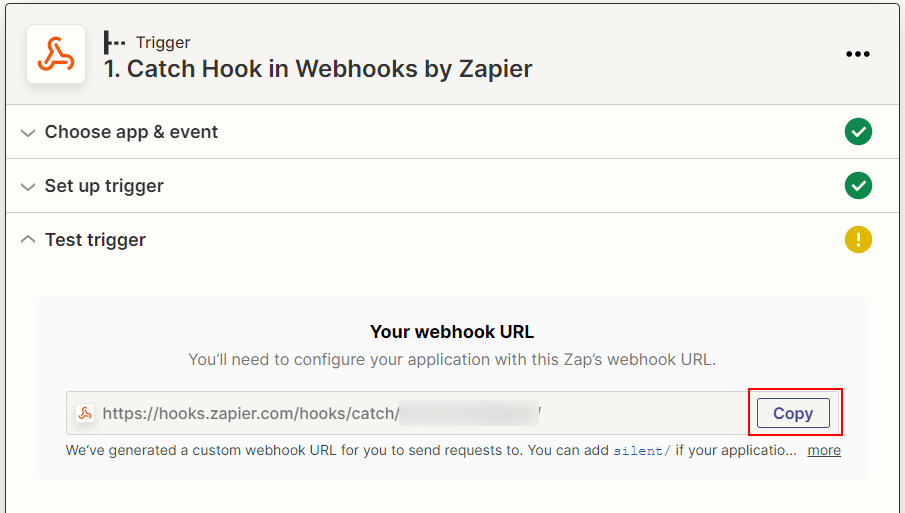
Next, you will set up a Webhook on kintone. Keep the Zapier website open.
Setting up a Webhook on kintone
-
Click the App Settings icon (the gear-shaped icon) at the upper right of the "View" screen.

-
On the "App Settings" screen, select the App Settings tab, and then click Webhooks under Customization and Integration.
-
Click Add Webhook.
-
Enter the description of the Webhook to be set up.
The description you enter here will be displayed in the list of Webhooks. You can enter up to 64 characters. -
In the Webhook Endpoint input field, paste the URL you have copied in Step 6 of the "Setting up a trigger on Zapier" section.
Delete "https://" at the beginning of the URL you have pasted.
You can enter up to 1,024 characters in the input field.
-
In the Events section, specify actions that will trigger a Webhook notification.
In this example, select Record is added.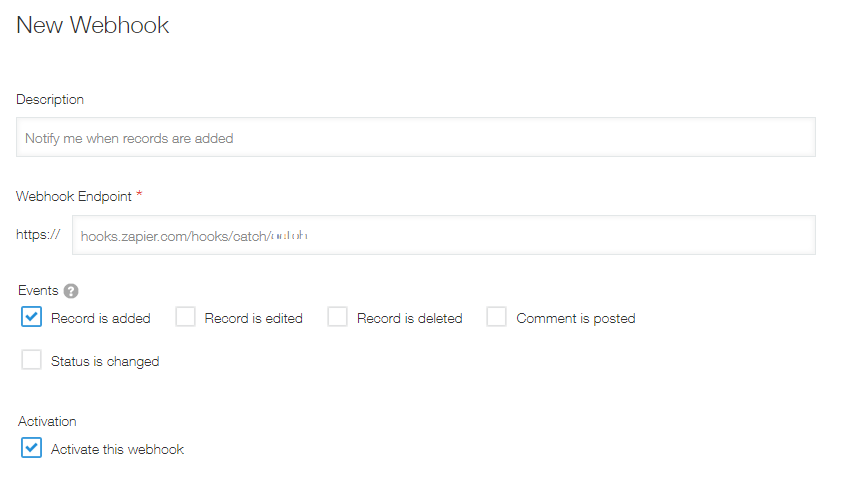
-
Select the Activate this webhook check box.
By default, the check box is selected. -
Click Save on the bottom right side of the screen.
-
Click App Settings in the message displayed at the top of the screen, or click Back to App Settings displayed at the bottom left of the screen.
-
Click Update App on the upper right side of the screen.
-
On the confirmation dialog, click Update App.
-
Add a new record on the kintone app so that you can test the trigger you have set up on Zapier.
-
Return to the Zapier website and click Test trigger.

-
Check that the test is successful. Then, click Continue.
If the test fails, try Test trigger several times.
If the test still fails, check that the URL you copied and pasted in the Webhook Endpoint input field is correct.
Setting up an action on Zapier
-
When the screen to set up an action is displayed in Zapier, select Gmail.
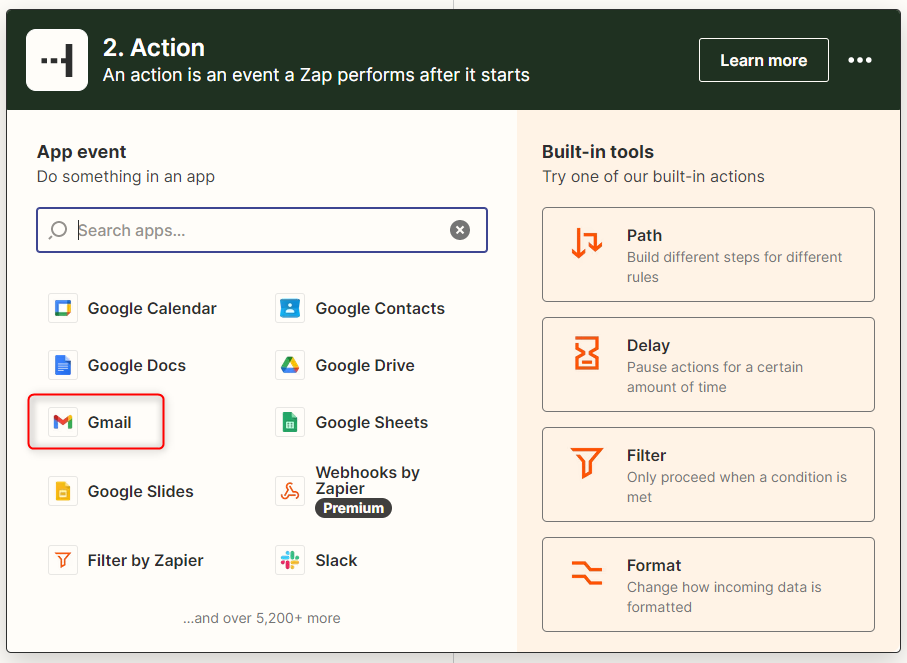
-
Select Send Email under Event and then click Continue.
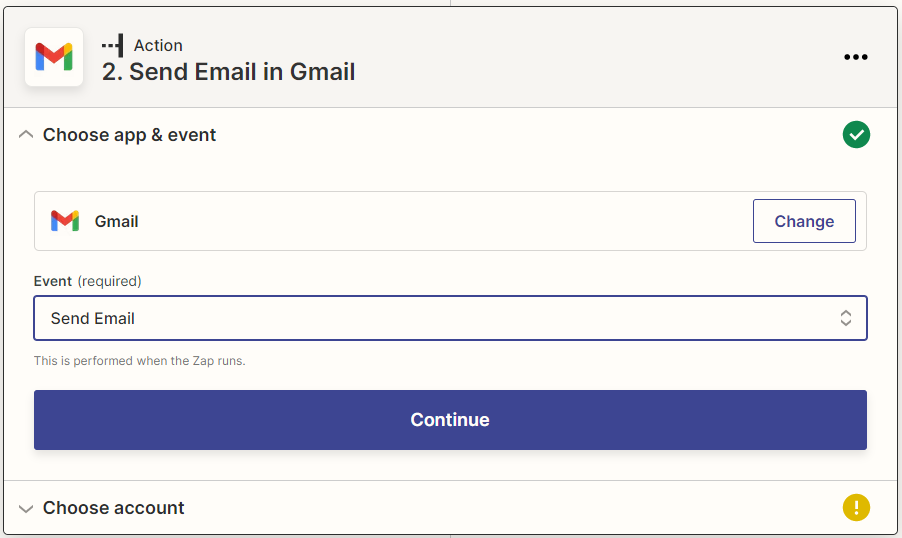
-
Select a Gmail account and then click Continue.
If you haven't signed in to Gmail, a screen appears for you to sign in to Gmail.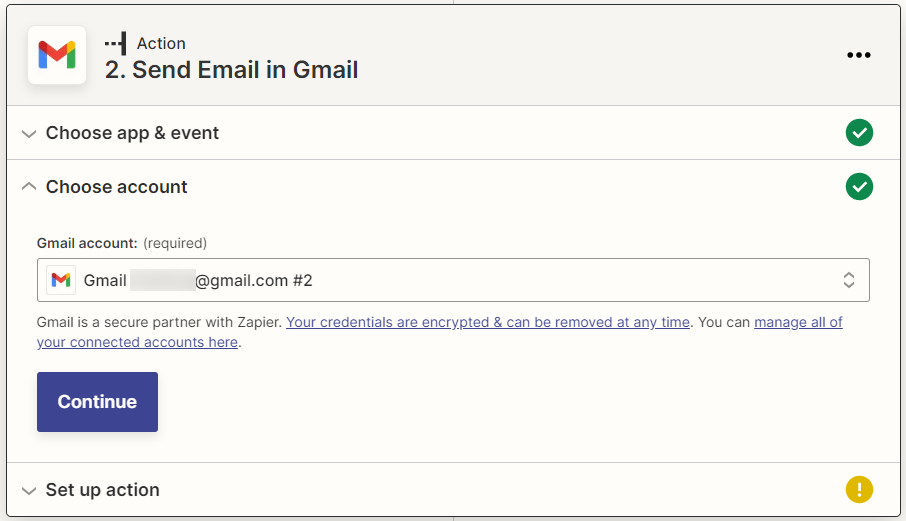
-
Specify the information to be sent to the Gmail account.
Enter the Gmail account of the recipient into the To section, and set up other necessary items including the Subject and Body sections. Then, click Continue.
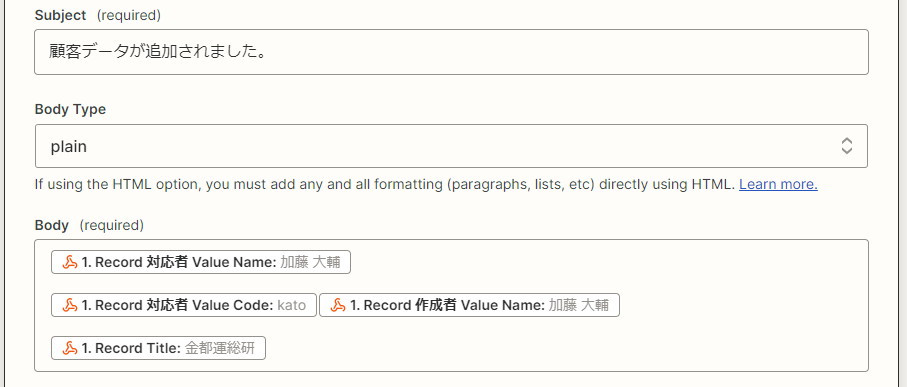
-
Confirm the setting you have set up and click Test & Continue.
-
Click Publish Zap.
-
Check that the notification e-mail is sent to the recipient's Gmail account, and click Publish & Turn On.
The Zap is now valid.
Changing the settings of a Webhook in kintone
Webhook settings in kintone can be changed later on. To change a Webhook's settings, follow the steps below.
-
Click the Edit icon in the far right column of the Webhook for which you want to change the settings.
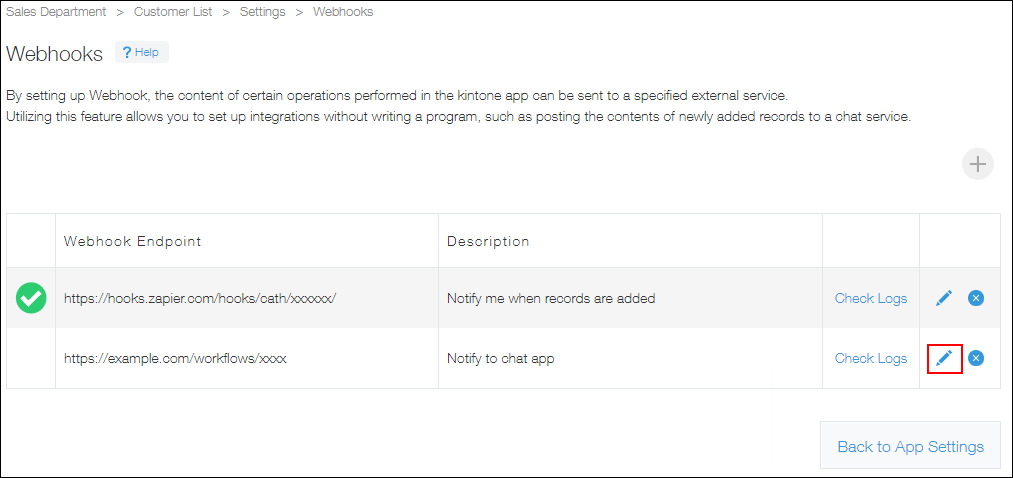
-
Edit the settings and click Save.
-
Click App Settings in the message displayed at the top of the screen, or click Back to App Settings displayed at the bottom left of the screen.
-
Click Update App on the upper right side of the screen.
-
On the confirmation dialog, click Update App.